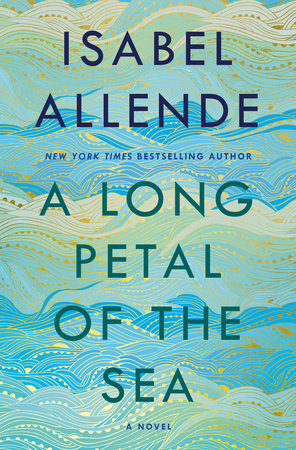The most outstanding pianist among Professor Dalmau’s students was Roser Bruguera, a young girl from the village of Santa Fe de Segarra who, had it not been for the generous intervention of Santiago Guzman, would have shepherded goats all her life. Guzman, from an illustrious family that had fallen on hard times thanks to generations of lazy sons who squandered money and lands, was spending his last years in an isolated mansion surrounded by mountains and rocks, but full of sentimental memories. He had been a professor of history at the Central University in the days of King Alfonso XII, and remained quite active despite his advanced years.
He went out every day, in the fierce August sun and the icy January winds, walking for hours with his pilgrim’s staff, battered leather hat, and hunting dog. His wife was lost in the labyrinths of dementia, and spent her days being cared for inside the house, creating monsters with paper and paint. In the village she was known as the Gentle Lunatic, and that’s what she was: she didn’t cause any problems, apart from her tendency to get lost as she set off toward the horizon, and to paint the walls with her own excrement.
Roser was about seven years old when on one of his walks Don Santiago saw her looking after a few skinny goats. It was enough for him to exchange a few words with her to realize that she possessed a lively and inquiring mind. The professor and the little goatherd established a strange friendship based on the lessons in culture he gave her, and her desire to learn. One winter’s day, when he came upon her crouched shivering in a ditch with her three goats, soaked from the rain and flushed with fever, Don Santiago tied up the goats and slung her over his shoulder like a sack, thankful she was so small and weighed so little. Even so, the effort almost killed him, and after a few steps he gave up. Leaving her where she was, he hurried on and called to one of his laborers, who carried her to the house. Don Santiago told his cook to give her something to eat, instructed his housemaids to prepare a bath and bed for her, and the stable boy to go first to Santa Fe and find the doctor, and then to look for the goats before someone stole them.
The doctor said the girl had influenza and was malnourished. She also had scabies and lice. Since nobody came to the Guzman house asking after her either on that day or any of the following ones, they assumed she was an orphan, until in the end they asked her directly and she explained that her family lived on the other side of the mountain. In spite of being as frail as a partridge, the young girl recovered rapidly, because she turned out to be stronger than she looked. She allowed them to shave her head to get rid of the lice, and didn’t resist the sulfur treatment they used for the scabies. She ate voraciously and showed signs of having a placid temperament that was at odds with her sad situation.
In the weeks she spent in the mansion, everyone, from the delirious mistress to all the servants, became deeply attached to her. They had never had a little girl in that stone house haunted by semi-feral cats and ghosts from past ages. The most infatuated was the professor, who was vividly reminded of the privilege of teaching an avid mind, but even he realized that her stay with them could not go on forever. He waited for her to recover completely and to put some flesh on her bones, then decided to visit the far side of the mountain and tell her negligent parents a few hard truths. Ignoring his wife’s pleas, he installed her, well wrapped up in his carriage, and took her off.
They came to a low muddy shack at the edge of the village, one of many wretched places in the area. The peasants lived on starvation wages, working on the land as serfs for big landowners or the Church. The professor called out, and several frightened children came to the door, followed by a witch dressed in black. She was not, as Don Santiago first thought, the girl’s great-grandmother, but was in fact Roser’s mother. These villagers had never received the visit of a carriage with gleaming horses before, and were dumbstruck when they saw Roser climbing out of it with such a distinguished-looking gentleman. ‘I’ve come to talk to you about this child,’ Don Santiago began in the authoritarian tone that had once struck fear into his university students. Before he could continue, the woman grabbed Roser by the hair and started shouting and slapping her, accusing her of the loss of their goats. The professor immediately understood there was no point reproaching this exhausted woman for anything, and on the spot came up with a plan that would drastically alter the girl’s destiny.
Roser spent the rest of her childhood in the Guzman mansion, officially adopted and taken in as the mistress’s personal servant, but also as the professor’s pupil. In exchange for helping the maids and bringing the Gentle Lunatic solace, she was given board and an education. The historian shared a good part of his library with her, taught her more than she would have learned in any school, and let her practice on the grand piano once played by his wife, who now could no longer recall what on earth this huge black monster was for. Roser, who during the first seven years of her life had heard no music at all apart from the drunkards’ accordions on Saint John’s Eve, turned out to have an extraordinary good ear. There was an old cylinder phonograph in the house, but as soon as Don Santiago realized his protégée could play tunes on the piano after listening to them only once, he ordered a modern gramophone from Madrid, together with a collection of records. Within a short time Roser Brugera, whose feet still didn’t reach the pedals, could play the music from the records with her eyes closed. Delighted, he found her a music teacher in Santa Fe, sent her there three times a week, and personally supervised her practice sessions. Roser, who was able to play anything from memory, didn’t see much point in learning to read music or to practice the same scales for hours, but did so out of respect for her mentor.
By the time she was fourteen, Roser was far more accomplished than her teacher, and at fifteen Don Santiago installed her in a guest house for young Catholic ladies in Barcelona so that she could continue her music studies. He would have liked to keep her by his side, but his duty as an educator won out over his paternal instinct. He decided that the girl had received a special talent from God, and his role in this world was to help her develop it. It was around this time that the Gentle Lunatic began to fade away, and in the end died without any fuss. Alone in his mansion, Santiago Guzman began increasingly to feel the weight of his years. He had to give up his walks with his pilgrim’s staff and the time spent reading by the hearth. His hunting dog also died, and he was loath to replace it because he didn’t want to die first and leave the animal without a master.
The arrival of Spain’s Second Republic in 1931 embittered the old man. As soon as the election results favoring the Left became known, King Alfonso XIII left for exile in France, and Don Santiago, monarchist, staunch conservative and Catholic that he was, saw his world collapsing around him. He could never tolerate the Reds, still less adapt to their vulgar ways: those ruthless people were lackeys of the Soviets who went around burning churches and executing priests. The idea that everyone was equal was fine as a theoretical slogan, he said, but in practice it was an aberration. We are not equal in the eyes of God, because He was the one who created social classes and other distinctions among mankind. The agrarian reform stripped Don Santiago of his land, which was not worth a great deal but had belonged to his family forever.
From one day to the next, the peasants spoke to him without doffing their caps or lowering their eyes. His inferiors’ insolence was more painful than the loss of his land, because it was a direct affront to his dignity and the position he had always held in this world. He dismissed all the servants who had lived under his roof for decades, had his library, paintings, other collections and memorabilia packed up, and closed his house under lock and key. All this filled three moving vans, but he couldn’t take the biggest pieces of furniture or the grand piano, because they wouldn’t fit into his Madrid apartment. A few months later, the Republican mayor of Santa Fe confiscated the house and turned it into an orphanage.
Among the many grave disappointments and reasons for anger Don Santiago suffered in those years was the transformation of his protégé. Under the bad influence of the troublemakers at the university, and in particular that of a certain Professor Marcel Lluis Dalmau, a communist, socialist, or anarchist—in the end, it was all the same thing—his Roser had turned into a Red. She had left the guest house for young ladies of good repute and was living with some hoydens who dressed as soldiers and practiced free love, which is what promiscuity and indecency had come to be called. He had to admit that Roser never showed him any lack of respect, but since she took it upon herself to ignore his warnings, he naturally had to withdraw his support for her. She wrote him a letter thanking him with all her soul for everything he had done for her, promising she would always follow the right path according to her own principles, and explaining she was working at night in a bakery and continuing to study music by day.
Don Santiago Guzman, installed in his luxurious Madrid apartment, where he could barely make his way through the clutter of furniture and other objects, and protected from the noise and vulgar uproar in the streets by heavy drapes the color of bull’s blood, socially isolated by his deafness and boundless pride, was blissfully unaware of how the most terrible rancor was surfacing in his country, a rancor that had been feeding on the wretchedness of some and the arrogance of others. He died alone and irate in his apartment in the Salamanca district four months before the uprising spearheaded by Franco’s troops. He was lucid to the end, and so accepting of death that he prepared his own obituary, to avoid some ignorant person publishing untruths about him.
He said farewell to no one, possibly because there was nobody close to him still alive, but he did remember Roser Bruguera, and in a noble gesture of reconciliation left her the grand piano, which was still being stored in the new orphanage at Santa Fe.
Copyright © 2020 by Isabel Allende. All rights reserved. No part of this excerpt may be reproduced or reprinted without permission in writing from the publisher.












